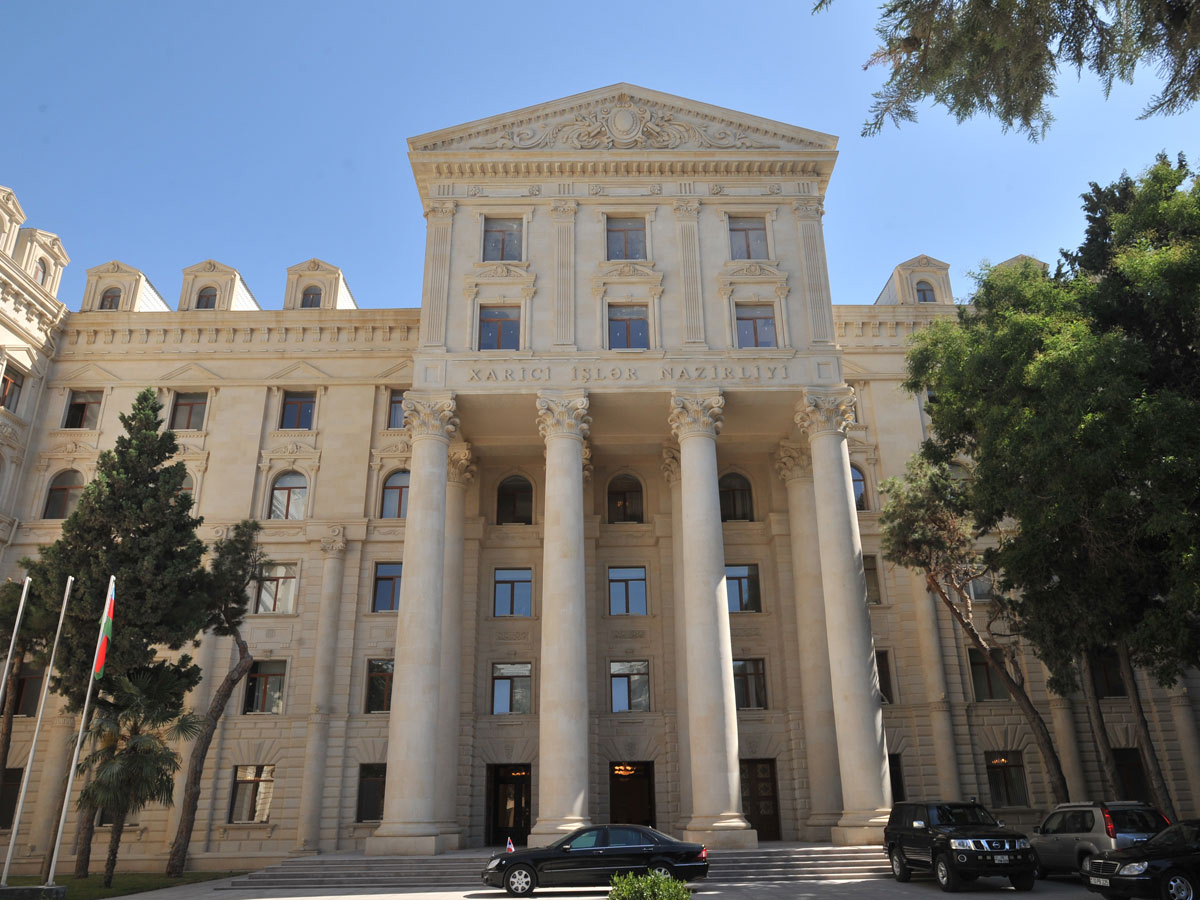Baku, Azerbaijan, April 2
By Seba Aghayeva - Trend:
Armenia's occupation armed forces on the territory of Azerbaijan clearly testify to the use of force, spokesman for the Azerbaijani foreign ministry Hikmet Hajiyev said.
He was commenting on Armenian Foreign Minister Edward Nalbandian's statement at the session of the Parliamentary Assembly of La Francophonie organization.
"The period of genocides is not the past realities," Nalbandian said at the meeting, the Armenian media reported. "The civilized world must constantly pay attention to the prevention of genocides. It must unite all efforts not to adjust this high humanitarian case to some geopolitical calculations."
Hajiyev said that although this is a rare case, but one can agree with Armenian foreign minister, stating about the "continuation of the period of genocide".
"Despite the genocide, committed by the Bolshevik-Dashnak forces against Azerbaijanis in Baku, Shamakhi, Guba and other cities in March 1918, Armenia's genocide against the Azerbaijani people and bloody policy of ethnic cleansing in a more terrible form continued in Armenia at the end of the twentieth century - Azerbaijani historical lands and the occupied territories of Azerbaijan," Hajiyev noted.
"It would be more serious if the Armenian foreign minister, who once again turned the theme of the "genocide" into the object of political speculation in front of an international audience on March 31 - the Day of Genocide of Azerbaijanis, gave an assessment of the bloody events of March 1918 against the Azerbaijanis, war crimes committed by Armenia on the occupied territories of Azerbaijan, crimes against humanity and genocide and acknowledged the responsibility of his country," said Hajiyev.
He said that the claims of Armenia as a state which is directly responsible for genocide for the role of the initiator to prevent genocide in the United Nations Human Rights Council is an example of disrespect for the international community and international institutions.
Hajiyev said that it would've been better if the Armenian foreign minister, who speaks about the settlement of the conflict, clarified the refusal to start work on the Big peace agreement, the failure to withdraw the occupation Armenian forces from the occupied Azerbaijani territories, as required by the co-chairs of the OSCE Minsk Group.
It would've also been better if the Armenian foreign minister clarified the fact that there is no opportunity given to exchange information about the fate of missing persons and dialogue between Azerbaijani and Armenian communities of Nagorno-Karabakh region of Azerbaijan, he said.
Hajiyev said Armenia's foreign minister, uses every opportunity to distort the OSCE Minsk Group co-chairs' appeals on the principles of non-use of force, threat of using it, on the principles of territorial integrity and the right of peoples for self-determination.
"Nalbandian, violating the sequence of the principles, ignoring the diplomatic and political ethics, puts the right of peoples to self-determination before the principle of territorial integrity," he said.
The foreign ministry's spokesman reminded Nalbandian that this form of the sequence of the principles is based on the Helsinki Final Act, and based on this sequence the territorial integrity principle is a priority, while the right of peoples to self-determination is fixed in line with the principle of territorial integrity.
Regarding the principle of peoples' self-determination, Azerbaijan has repeatedly said that following the withdrawal of Armenian armed forces from the occupied lands, Armenian and Azerbaijani communities of Azerbaijan's Nagorno-Karabakh region can determine their fate within Azerbaijani borders, said Hajiyev.
"Armenia, which talks much about the use of force or the threat of the use of force, still doesn't understand that it is responsible for the fulfillment of the conditions arising from these principles," he said.
Armenia has occupied Azerbaijani territories by using force, said Hajiyev. "Namely Armenia poses threat by keeping a military contingent on Azerbaijan's occupied territories."
Hajiyev went on to add that the presence of Armenian troops on Azerbaijani territories is the clear proof of the use of force, and it also threatens the regional peace and stability and is a source of instability.
"Peace and stability in the region can be restored only after Armenia puts an end to aggression and occupation and withdraws from the occupied lands," said Hajiyev.
The conflict between the two South Caucasus countries began in 1988 when Armenia made territorial claims against Azerbaijan. As a result of the ensuing war, in 1992 Armenian armed forces occupied 20 percent of Azerbaijan, including the Nagorno-Karabakh region and seven surrounding districts.
The two countries signed a ceasefire agreement in 1994. The co-chairs of the OSCE Minsk Group, Russia, France and the US are currently holding peace negotiations. Armenia has not yet implemented the UN Security Council's four resolutions on the liberation of the Nagorno-Karabakh and the surrounding regions.
Edited by SI
---
Follow the author on Twitter: @Asebaa






